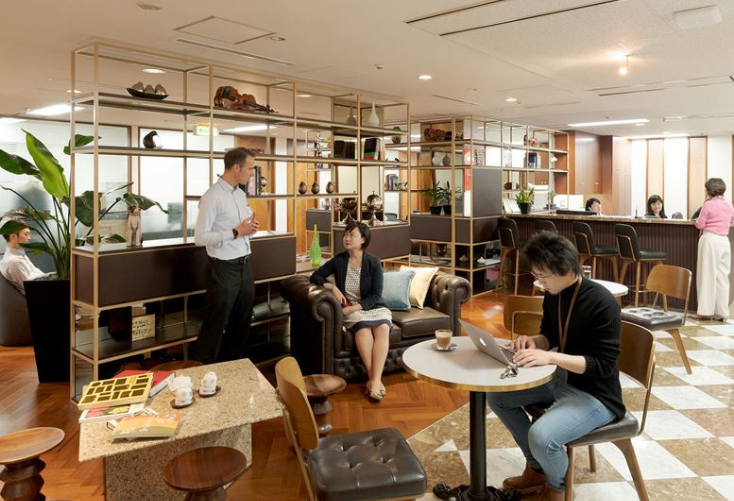Hand selected flexible workspace news from the most reliable sources to keep you ahead of the pack. We find all the latest news, so you don’t have to. Morning and afternoon updates. Stay in the know.
- ServCorp Sees Increased Demand From Enterprise Clients
- Suburban Flexible Offices Are The Solution
- WeWork India CEO Anticipates Revenue Growth
ServCorp Sees Increased Demand From Enterprise Clients
Workspace solutions firm ServCorp is one of several coworking companies who are reevaluating their target audience. Traditionally, these operators aim to serve small and medium-sized firms, but inquiries from enterprise clients have been growing.
However, smaller companies are looking to downsize their office space or opt for virtual office services due to the economic impact of the pandemic.
During Singapore’s lockdown period, the company was able to keep its doors open, but saw a 5 to 10% dip in average occupancy. In more recent months, ServCorp has been rearranging its workspaces to better accommodate physical distancing needs and remote working arrangements.
While occupancy took a hit, the company said that some larger clients who required more space to accommodate splitting up teams were able to use ServCorp’s services.
“For example, we have a client, an energy company based in the CBD, who took 10 coworking solutions from us for their team of 20 in Singapore,” said Anna Chavez, ServCorp general manager for China and Southeast Asia. “This allowed them to rotate teams working from home and office on a roster basis. The roster was prepared by a ServCorp manager and the team books their desks in advance to ensure there will be no over/under usage of availability.”
Chavez added that it appears that the coworking market has already gone through the worst of the economic downturn and will remain stable despite an expected slowdown in transactions.

Suburban Flexible Offices Are The Solution
Coworking companies have had to be creative in their marketing strategies in the age of COVID-19. Rooftop bars and foosball tables aren’t the ideal amenities for professionals looking for a safe, healthy workplace. Now, coworking spaces are offering workers a place of peace, solace and privacy — an 180 degree turn from its usual collaborative modus operandi.
So why would a worker opt to pay a monthly fee for a workspace when they can continue to get work done from home for free?
“There are a couple of things that people don’t really like about offices and it’s less about the offices themselves, it’s about the commute and having to work with people they don’t relate as much with,” said Michele Cuccovillo, managing director and cofounder of London-based coworking firm Salty Commune. “We thought if you’re in a company and you’re in the design department, you’re much better off spending time with other professionals in the space and bouncing ideas off them. It’s a way of enriching themselves.”
For the Salty Commune, Cuccovillo noted an uptick in inquiries from people who work in creative departments for large companies.
Although working remotely has its perks, this can be hindering for those who live in smaller spaces and do not have the ability to create a separate workspace for themselves. That is why offering an office in more suburban areas may just be the key to finding the balance between in-office and remote working arrangements.

WeWork India CEO Anticipates Revenue Growth
WeWork India has announced that it anticipates its revenue to grow by 25% this year as demand for flexible workspaces continue to grow.
CEO Karan Virwani said that the company plans to acquire clients first, then sign leases with Grade A office spaces. Previously, the company would first outfit their workspaces before reaching out to potential new members. This is one of the many new methods the company has adopted to maintain business and achieve profitability again, despite losing 15% of its clients during the main heat of the pandemic.
Additionally, the company is aiming to target educational institutions to provide a space for students who are unable to go back to school and aid in de-densifying schools.
“Business is doing good. Customers want more flexible workspace. Not only the new age but traditional businesses are also looking for coworking space to reduce their capex,” said Virwani. “We will expand based on demand. We will find new clients and then sign up real estate space.”



 Dr. Gleb Tsipursky – The Office Whisperer
Dr. Gleb Tsipursky – The Office Whisperer Nirit Cohen – WorkFutures
Nirit Cohen – WorkFutures Angela Howard – Culture Expert
Angela Howard – Culture Expert Drew Jones – Design & Innovation
Drew Jones – Design & Innovation Jonathan Price – CRE & Flex Expert
Jonathan Price – CRE & Flex Expert












